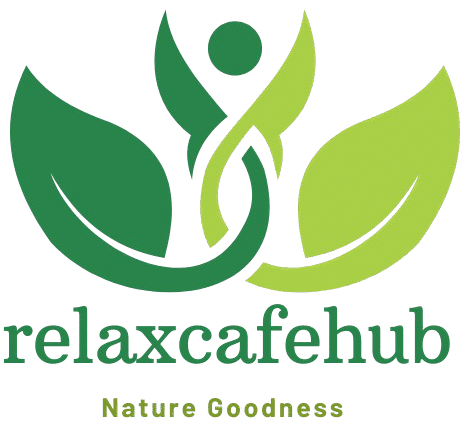Daily Mindfulness Practices to Reduce Anxiety
In today’s fast-paced world, anxiety has become an all-too-common companion. Deadlines, personal responsibilities, digital overload — it all piles up, and before we know it, our thoughts are racing and our hearts are pounding. But what if we told you that just a few minutes of mindfulness each day could help quiet that mental noise? You don’t need to be a monk or retreat to the mountains to find calm. Incorporating simple, daily mindfulness practices can be a powerful way to reduce anxiety and reclaim your peace of mind.
What is Mindfulness and Why Does It Help with Anxiety?
Mindfulness is the practice of being fully present in the moment without judgment. It’s about tuning in to your thoughts, feelings, bodily sensations, and surroundings — not to analyze or fix anything, but simply to observe. When practiced consistently, mindfulness has been shown to lower stress levels, improve emotional regulation, and reduce symptoms of anxiety.
Anxiety thrives on what-ifs and worst-case scenarios. Mindfulness, on the other hand, roots you in the present. Instead of spiraling into thoughts of what might go wrong tomorrow, mindfulness gently reminds you that right now, you are okay. Over time, this awareness trains your brain to respond more calmly and less reactively to stress.
So, how can you build a daily mindfulness routine that genuinely works? Let’s dive into a list of simple yet effective practices.
1. Morning Body Scan Meditation
Before reaching for your phone in the morning, try a five-minute body scan meditation. Lie still and bring your attention to different parts of your body — from your toes up to your head. Notice any sensations, tension, or areas of comfort. This anchors your awareness in your body and creates a calm starting point for the day.
How to do it:
- Close your eyes and take a few deep breaths.
- Mentally scan your body from bottom to top.
- If your mind wanders, gently guide it back to the area of focus.
- Don’t try to change anything. Just observe.
Why it works:
This exercise grounds you physically and mentally, offering a gentle transition from sleep to wakefulness and helping you set a calm tone for the rest of the day.
2. Mindful Breathing Breaks
Throughout the day, your breath is your built-in reset button. Mindful breathing is one of the most accessible and effective tools to calm anxiety. All it takes is a few conscious breaths to shift your nervous system out of fight-or-flight mode.
Try this:
- Inhale slowly for a count of 4.
- Hold for 4 counts.
- Exhale for 4 counts.
- Pause and repeat.
You can do this for just one minute between meetings or during a moment of overwhelm.
Pro tip: Use reminders on your phone or sticky notes on your desk that say, “Breathe.”
Why it works:
Intentional breathing activates the parasympathetic nervous system — your body’s natural relaxation response — and brings you back to the present.
3. Mindful Walking
If you often feel restless or anxious, sitting still for meditation might feel frustrating. That’s where mindful walking comes in. This is a moving meditation that can be practiced anywhere — a hallway, your backyard, a park, or even indoors.
How to practice:
- Walk slowly and focus on the sensation of your feet touching the ground.
- Notice how your legs move, how your arms swing, the rhythm of your steps.
- Pay attention to sights, sounds, and smells around you without labeling or judging them.
Why it works:
Mindful walking releases physical tension and channels mental energy into movement, helping quiet racing thoughts while keeping your body engaged.
4. Mindful Journaling
Writing is a powerful outlet for processing emotions. Mindful journaling, in particular, allows you to slow down and reflect without overthinking.
What to write about:
- Your current thoughts or emotions.
- What are you grateful for today?
- A recent moment when you felt calm or present.
How to make it a habit:
- Set aside 10 minutes at the end of the day.
- Use a dedicated notebook.
- Write without editing or censoring yourself.
Why it works:
Journaling creates a safe space for self-expression and helps you observe patterns in your anxiety, making it easier to respond with compassion and clarity.
5. Digital Detox Moments
Let’s face it — constant notifications and endless scrolling add fuel to our anxiety. Creating small tech-free windows in your day can help you reconnect with yourself and your surroundings.
Ideas for digital detox breaks:
- No phone during meals.
- 30-minute screen-free mornings.
- Turning off notifications during work blocks.
Why it works:
Reducing digital distractions makes space for more intentional living. These quiet pockets give your brain the break it needs to decompress and refocus.
Mindfulness isn’t about achieving perfect calm or shutting off your mind. It’s about noticing what’s happening within and around you, moment by moment. By weaving simple practices into your daily routine, you build resilience against anxiety, not just for today, but for the long haul.
Whether you start with a morning body scan, a few mindful breaths during your lunch break, or five minutes of journaling at night, remember: small shifts lead to big transformations. Mindfulness isn’t a quick fix, but it is a lasting one.
